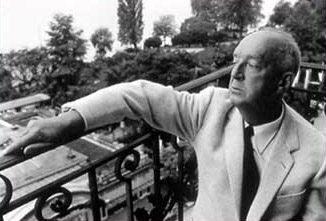
I have been seduced by Vladimir Nabokov and Truman Capote, drawn into a sinister world by magical prose. I don't want to read or admire the fictional Lolita or the non-fictional In Cold Blood, but every few years I am drawn back into their pages like falling back into the arms of the thoughtless lover who I fully know will abandon me yet again after the initial passion wears off.
Sometimes I think I see red smoke swirling around me as my eyes cross the lines of the page, and I swear I have smelled the musky allure of myrrh. We are told that certain serial killers have had this bewitching power; this is how they entice their victims into their cars or home to their apartments where they rape, torture, and dismember the naive. Ted Bundy is said to have had this come-hither charm, a male siren dashing victims on rocks if you will.
Both authors use objectivity and mellifluous prose as well as the technique of humanizing the criminals in order to beguile and tempt us into understanding, if not actually siding with, evil, and thereby both authors horrify us all the more.
Nabokov even concedes, self-reflexively, to the objective tone he has decided upon. He seems to anticipate early in the novel the objections readers may have. "And now take down the following important remark," he writes. "The artist in me has been given the upper hand over the gentleman. It is with a great effort of will that in this memoir I have managed to tune my style to the tone of the journal that I kept when Mrs. Haze was to me but an obstacle. That journal of mine is no more; but I have considered it my artistic duty to preserve its intonations no matter how false and brutal they seem to me now."
Likewise, Capote uses a distant and objective tone to describe even the most horrifying aspect of the murderers' personalities. When describing Dick's interest in little girls, he writes, "That, to be sure, was something he was sure he was - 'a normal.' Seducing pubescent girls, as he had done 'eight or nine' times in the last several years, did not disprove it, for if the truth were known, most real men had the same desires he had." Like Nabokov, Capote well understands how shocking this objectivity may be to readers and quickly offers Perry's revulsion to sublimate the horror somewhat.
But what really beguiles is the fascinating and provocative prose, at once beautiful, magnetic, tempting. Nabokov ends his novel, "I am thinking of aurochs and angels, the secret of durable pigments, prophetic sonnets, the refuge of art. And this is the only immortality you and I may share, my Lolita." The alliteration creates a sort of mellifluous hypnotizing force, seductive to the last. Angels and art. Sonnets and sharing. For Capote, the spell is cast early: "The car was parked on a promontory where Perry and Dick had stopped to picnic. It was noon. Dick scanned the view through a pair of binoculars. Mountains. Hawks wheeling in a white sky. A dusty road winding into and out of a white and dusty village." Nostalgic and sentimental, soaring and white, Capote's prose may be dusty but it's also exquisite, resplendent, even sublime.
Humbert Humbert is nothing if not human. "When I started, fifty-six days ago, to write Lolita," he says, "first in the psychopathic ward for observation, and then in this well-heated, albeit tombal, seclusion, I thought I would use these notes in toto at my trial, to save not my head, of course, but my soul." How could we despise a man so concerned with his imortal soul? Elsewhere, about his mother's health, he explains, "I said the doctors did not know yet what the trouble was. Anyway, something abdominal. Abominable? No, abdominal. We would have to hang around for awhile." The caring son, sharing news of his mother's health, showing concern, and thus Humbert Humbert is harder to hate.
Perry doesn't think he has "a lot to live for." He will never experience "hot islands and buried gold, diving deep in fire-blue seas toward sunken treasures - such dreams were gone. Gone, too, was 'Perry O'Parsons,' the name invented for the singing sensation of stage and screen that he'd half-seriously hoped some day to be." Capote goes so far as to actually make us feel sorry for Perry, to regret the death of his dreams as much as he does.
Concomitant with my revulsion, as I read Lolita and In Cold Blood, comes my respect for the genius of Nabokov and Capote. If they had created pure villains, the stories would not have the same poisonous, infectious power. Planted in the earth of objectivity, beauty, and humanization is the seed of abomination. As this seed grows vines, they wrap around our very hearts squeezing out fear, trepidation, disgust, if not loathing.
November 2008 |



